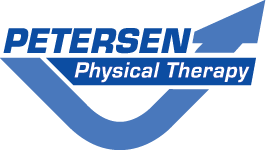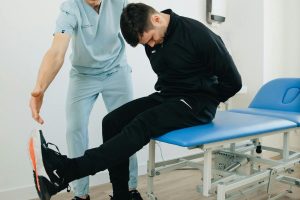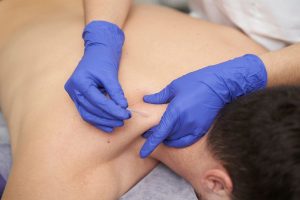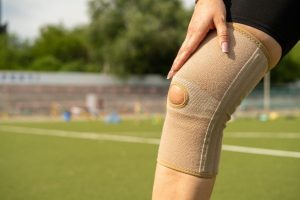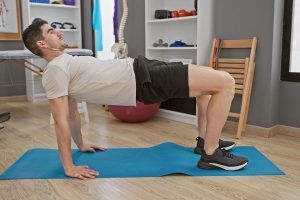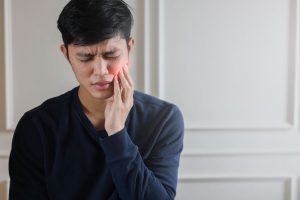Among our new patients, the feeling of physical and mental fatigue after physical therapy can come as a bit of a surprise! The great news is that this is extremely common. Within reason, we view it as a good sign:
It is normal to feel tired after physical therapy. Physical therapy involves exercises and activities that can be physically demanding, leading to fatigue as your body works to recover and strengthen. This tiredness is a natural response and typically improves as your body adjusts to the therapy regimen.
The good news is that it typically gets better with time. In this article, we’ll discuss why physical therapy makes you tired, and what to expect as you progress along your journey.
Why you feel fatigue after physical therapy
If you’ve ever been exposed to physical therapy before, you know that it’s not an overnight matter; physical therapy takes time to work! Patients sometimes even report that they feel worse before they feel better (a separate topic entirely!).
There are three main reasons that people experience tiredness as a side effect of physical therapy:
Physical exertion
Perhaps the most obvious reason that you feel tired after physical therapy is the simple physical muscle fatigue from performing exercises. Depending on the diagnosis, you may be doing anything from small finger movements (not very fatiguing) to Romanian Deadlifts with a resistance band (quite fatiguing!).
Additionally, you may be performing mobility and flexibility drills that are causing you to move your body in ways you haven’t had to think about in quite a while!
While we do not want unnecessary pain or stiffness as a result of your physical therapy treatment plan (please let us know if you’re experiencing this!), the feeling that you’ve physically exerted yourself after a physical therapy session is a good sign that you’ve performed the right amount of exercise.
Mental exertion
An often overlooked element of physical therapy is that you’re mentally exerting yourself as well. We may be training you on new movement patterns that are unfamiliar to you, or asking you to exert strength in a direction that you aren’t used to.
This mental fatigue tends to be more systemic and less focused on the particular body part you’re focusing on in your sessions.
All of these things require some amount of mental focus, and that mental focus takes its toll and adds to the amount of fatigue you feel overall. It’s common to interpret this mental fatigue as being “tired.”
The body’s healing response
The last (and possibly most significant) reason you feel tired after physical therapy is the body’s natural healing response. Semi-strenuous physical activities cause the body’s natural healing responses to kick in to rebuild the muscles and joints we’re targeting.
In physical therapy, we use numerous modalities from manual therapy, electrical stimulation, heat/cold packs, and many more. All of these modalities, in combination with the rebuilding of strength, stability, and mobility through therapeutic exercises and stretches, are centered on improving blood flow to a particular area of your body.
Afterward, the body spends some time “rebuilding” and growing back stronger. Anyone who has spent time doing traditional strength training will be familiar with the increased need for sleep and vital nutrients to meet this demand. Until you’re familiar with and adapted to this feeling, it’s typical for it to interpret this feeling as tiredness or fatigue.

How to manage fatigue effectively
The good news is that you won’t feel this way forever, and you should notice improvement even during your weeks or months of physical therapy.
The first and most important suggestion we have is to give it time. We stress this with our patients because it’s common to quit or become inconsistent with your appointments during initial setbacks, and this is probably the worst thing you could do.
Rather, we encourage you to communicate with your therapist regarding your fatigue levels so they can make adjustments if necessary.
Secondly, we encourage patients to set their schedule in such a way that they get rest days from physical therapy. We understand that this isn’t always possible, but it is certainly a best practice if you’re able to commit to a regular schedule of Monday, Wednesday, Friday or something similar.
A final suggestion is to stay hydrated prior to your sessions, and carry this practice on afterward. Though we aren’t “working out” in the traditional sense, we’re still exerting physical energy, and if you’re not properly hydrated, the consequence may be excessive fatigue afterwards.
A final caveat regarding fatigue after physical therapy
As we’ve mentioned in many of our articles, discussing these issues with your therapist as they arise is a vital element of the therapeutic process.
Otherwise, you may go days or weeks with unnecessary pain, discomfort, or the general feeling that your physical therapy isn’t working.
As therapists, we assume that we’re going to need to make adjustments to the plan based on your feedback. In addition, we have our own default adjustments we’ll make as time goes on and you show progress. Just like with any relationship, the quality of our input will only be as good as the feedback we get from you!
So don’t be shy – if you’ve got questions about the way you feel before, during, or after your sessions, bring it up to us in your next appointment!
